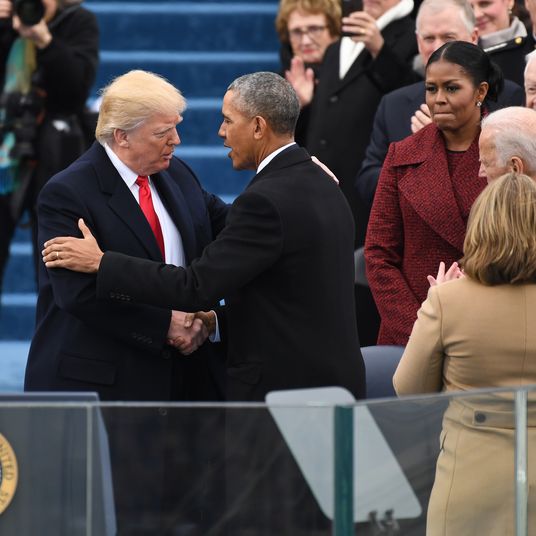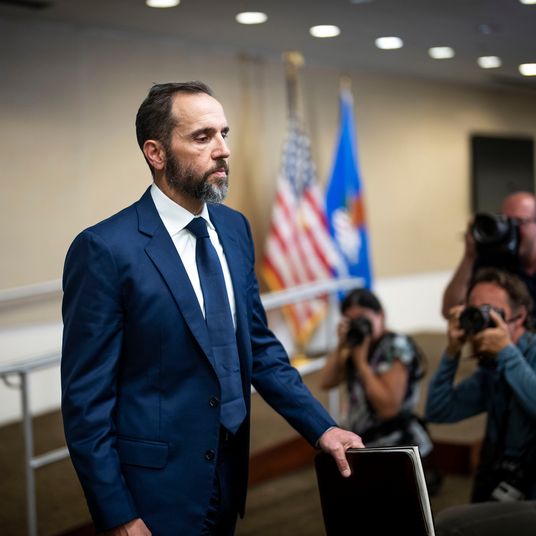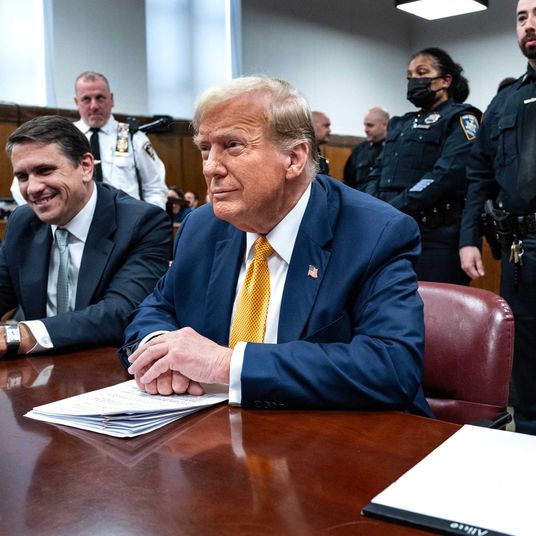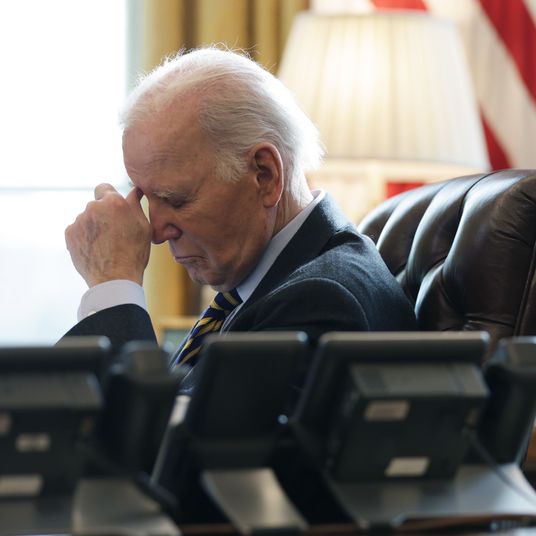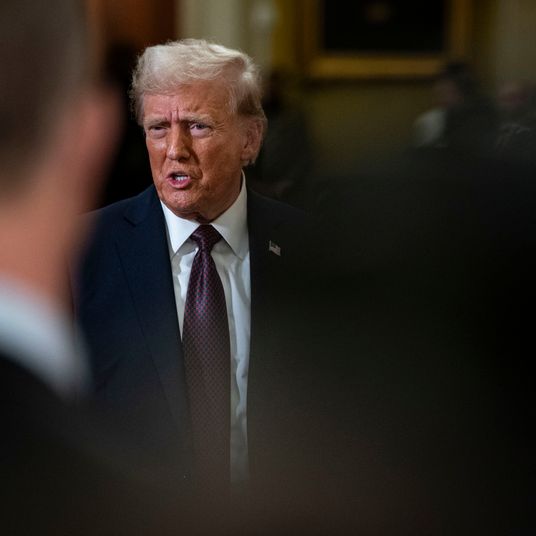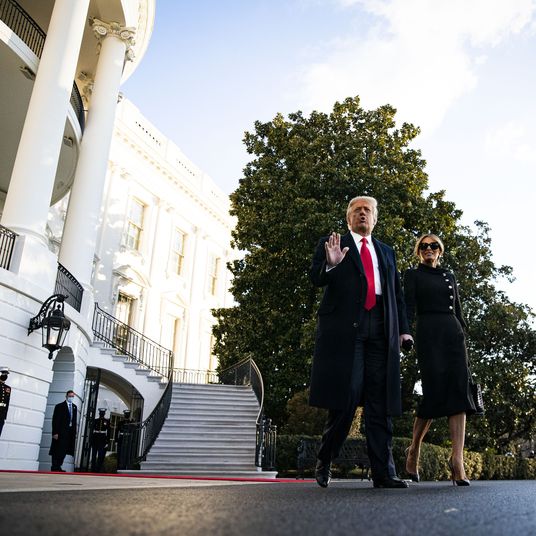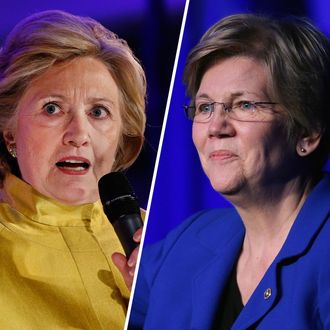
With Senator Elizabeth Warren’s name officially surfacing in the Boston media as a possible running mate for Hillary Clinton, the inevitable question has arisen: Is America ready for a presidential ticket featuring two Methodists?
Okay, just kidding.
But not about the underlying facts. HRC campaign chairman John Podesta did indeed tell the Boston Globe that “there will be women on that list” of possible vice-presidential choices when the time comes for ticket-making. A separate Globe article speculated that Janet Napolitano, Jeanne Shaheen, Amy Klobuchar, and Patty Murray could join the junior senator from Massachusetts as women under consideration for the gig.
Let’s get serious, though. Unless Podesta is just conducting old-school constituency-tending via the process of “mentioning” women along with various other demographic categories as potentially supplying a Clinton running mate, speculation should begin and end with Elizabeth Warren. No credible candidate of either gender or from any background could so quickly and definitively prevent the party split that tensions between Bernie Sanders and Hillary Clinton have threatened to create. Yes, in theory Democrats could nominate a “unity ticket” of Clinton and Sanders; neither has ruled that out. But the crow-eating and ego-stroking involved in that scenario probably exceeds the obstacles that prevented an Obama-Clinton unity ticket in 2008.
Besides, is there really a sizable body of Sandernistas out there who would be dissatisfied with Warren on the ticket? She’s the candidate many of them hoped and prayed for in the first place. And despite an unimpeachable record on the anti–Wall Street themes that most excite Sanders supporters, Warren has few of his weaknesses: She’s well under 70, has not made a habit of calling herself a “socialist,” and will never be played by Larry David on Saturday Night Live.
The objections to a Clinton-Warren ticket are not terribly credible. Yes, Warren is from blue-state Massachusetts, not a battleground state. Recent research, however, has pretty conclusively demonstrated that a running mate doesn’t make his or her state significantly more winnable, which reduces the allure of Warren Senate colleagues like Tim Kaine and Sherrod Brown. And yes, Warren would not break any glass ceilings that Clinton is not already breaking at the top of the ticket. But with 92 of 94 major party tickets since the Second Party System emerged in 1828 being composed of two men, can anyone seriously object to one composed of two women? I suspect the first crass joke from Donald Trump about two chicks on the ticket would be pretty severely punished by the swing voters who already look dimly on him and the contemporary GOP anyway.
Conversely, choosing Warren would reinforce the historic nature of the ticket, much as Bill Clinton’s choice of fellow young southern moderate Al Gore in 1992 reinforced his claims to be a “different kind of Democrat” and the avatar of generational change. That partnership worked out pretty well, or would have had the U.S. Supreme Court not had different plans for the country in 2000.
The Washington Post’s Chris Cillizza today all but rules out a Clinton-Warren ticket on one vague ground — a lack of “personal chemistry,” which if true could be a big problem, but he cites zero evidence of that particular hunch — and one specific one: Clinton doesn’t really need to mend fences with the kind of left-bent voters who are concerned about her integrity or her relationship with Wall Street. He calls Warren “a specialized pick to fix a very particular problem — which doesn’t exist yet and likely won’t.” There’s a pretty easy test for Cillizza’s proposition: polling Clinton partisans on how they feel about a ticket that includes Warren. If there is this unbridgeable division in how the two women view the world, as Cillizza suggests, it should extend to Clinton’s supporters, and I betcha it doesn’t. And far from being the break-this-glass-in-the-case-of-emergency option, Warren would be, in the eyes of most political observers across the spectrum, a more substantial figure than just about any pol you could name.
If Clinton is going to seriously consider Warren as a running mate, she should make a decision as soon as vetting is completed (and obviously with Warren’s own consent, which by no means should be assumed) and then share the news with the world, if possible even before the June 7 primaries that will end the nomination fight. Even if Cillizza’s right and the odds of a serious party split have been oversold, there’s nothing wrong with preempting trouble before it arises.









